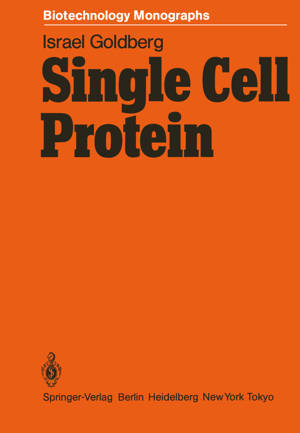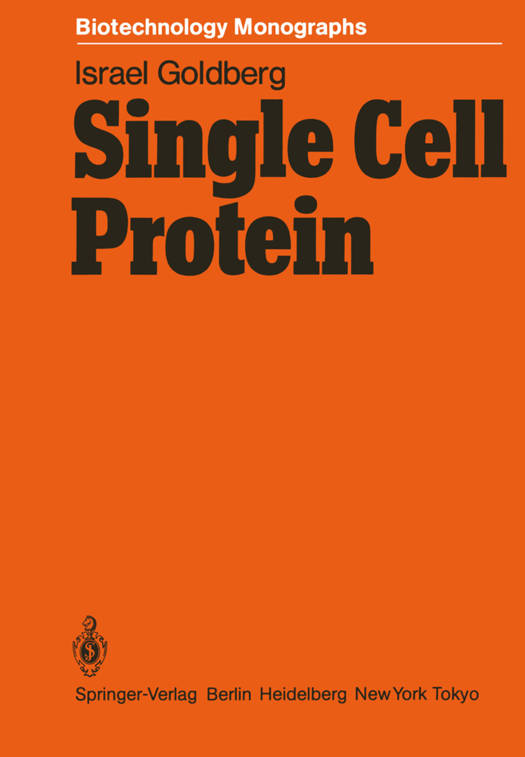
Bedankt voor het vertrouwen het afgelopen jaar! Om jou te bedanken bieden we GRATIS verzending (in België) aan op alles gedurende de hele maand januari.
- Afhalen na 1 uur in een winkel met voorraad
- In januari gratis thuislevering in België
- Ruim aanbod met 7 miljoen producten
Bedankt voor het vertrouwen het afgelopen jaar! Om jou te bedanken bieden we GRATIS verzending (in België) aan op alles gedurende de hele maand januari.
- Afhalen na 1 uur in een winkel met voorraad
- In januari gratis thuislevering in België
- Ruim aanbod met 7 miljoen producten
Zoeken
€ 145,19
+ 290 punten
Omschrijving
In early 1973, I returned to Israel from a post-doctoral fellowship at Harvard University, and was accepted as a lecturer in the Department of Applied Microbiology at the Hebrew University of Jerusalem. Shortly after my return, Professor Richard Mateles, who at that time was head of the Department, suggested that I purchase a good and comprehensive book on single cell protein (SCP) in order to expand my general knowledge in the subject I had started then to work on; that was microbial utilization of one-carbon (C ) compounds. l Naturally, I took his advice (after all, he was the Boss) and bought the book, which was the only general book published on this subject at that time, and was based on papers presented at the First International Conference on Single Cell Protein, held at the Massachussetts Institute of Technology (M.I.T.), on October 1967 (Mateles and Tannenbaum, editors) [1]. Through this book I became acquainted with the world's hunger problem that existed in the past, and ways in which it was to be solved by SCP products prepared from CO, fossil-based raw 2 materials, and from wastes.
Specificaties
Betrokkenen
- Auteur(s):
- Uitgeverij:
Inhoud
- Aantal bladzijden:
- 190
- Taal:
- Engels
- Reeks:
- Reeksnummer:
- nr. 1
Eigenschappen
- Productcode (EAN):
- 9783642465420
- Verschijningsdatum:
- 6/03/2012
- Uitvoering:
- Paperback
- Formaat:
- Trade paperback (VS)
- Afmetingen:
- 170 mm x 244 mm
- Gewicht:
- 331 g

Alleen bij Standaard Boekhandel
+ 290 punten op je klantenkaart van Standaard Boekhandel
Beoordelingen
We publiceren alleen reviews die voldoen aan de voorwaarden voor reviews. Bekijk onze voorwaarden voor reviews.









